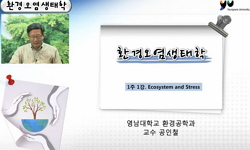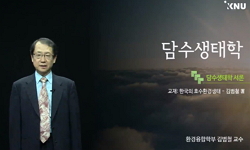This article examined issues related to ‘gardens’, which appear consistently in the 18 poetry collections of poet Jeong Jin-Gyu from his first collection to his last and which act as the physical space and mental space of poetry. In the poetry of ...
http://chineseinput.net/에서 pinyin(병음)방식으로 중국어를 변환할 수 있습니다.
변환된 중국어를 복사하여 사용하시면 됩니다.
- 中文 을 입력하시려면 zhongwen을 입력하시고 space를누르시면됩니다.
- 北京 을 입력하시려면 beijing을 입력하시고 space를 누르시면 됩니다.
https://www.riss.kr/link?id=A107256258
-
저자
정효구 (충북대학교 국어국문학과 교수)
- 발행기관
- 학술지명
- 권호사항
-
발행연도
2020
-
작성언어
-
-
주제어
정진규 ; 정원 ; 마당 ; 생태학 ; 생태인문학 ; 영성생태학 ; Jeong Jin-Gyu ; garden ; yard ; ecology ; ecological humanities ; spiritual ecology
-
KDC
0
-
자료형태
학술저널
-
수록면
5-44(40쪽)
- 제공처
- 소장기관
-
0
상세조회 -
0
다운로드
부가정보
다국어 초록 (Multilingual Abstract)
This article examined issues related to ‘gardens’, which appear consistently in the 18 poetry collections of poet Jeong Jin-Gyu from his first collection to his last and which act as the physical space and mental space of poetry.
In the poetry of Jeong Jin-Gyu, such ‘gardens’ go through three stages, mutually developing and edifying the ecological world and the world of the humanities. The first stage is the period of garden discovery and growth and development through ‘ddurak (garden)’ from the mid-1960s to the early 2000s that can be referred to as the ‘Seoul years’ or 'Suyuri years’. Here, the poet Jeong Jin-Gyu relies on the small ‘ddurak' of his residence and gives birth to an ecological sense along with humanistic sensibility and a mental world and he makes these grow in abundance.
The second stage is the rapid developmental stage of ‘gardens’ through the ‘Anseong period’ in the early 2000s after the return to ‘Anseong’, which was his hometown and place of birth. The poet Jeong Jin-Gyu builds a house called Seokgahun in his returned hometown and birthplace and cultivates and builds a garden of a new level. The largest part of this Seokgahun is not the house as a building that forms the Seokgahun, but the yard’ or ‘garden’, which encompasses the whole and acts as the foundation and center. The garden’ of 'Seokgahun/yard’ during the ‘Ansung period’ is the stage of ripening’ in the history of ‘gardens’ in Jeong Jin-Gyu’s poetry.
Finally, the poet Jeong Jin-Gyu cultivates and opens a garden of another level by changing the ‘seokgahun/yard’ of the Anseong period into 'yulliujeongsa/yard’. In this yuliujeongsa yard or garden, the poet Jeong Jin-Gyu creates a world beyond the humanities of modem meaning, can be called spiritual ecology or ecological spiritualism Here, the poet puts down his superior and intentional human composition as a gardener and becomes a listener of an equal, self-sustaining, and cosmic garden in which “yulliu,” the origin of cosmic logic, works itself. Thus, he is no longer a gardener or garden owner in a general sense at this stage, but a steward of a self-sustaining and cosmic garden who has seen the garden make its own garden.
The accompaniment of ‘gardens’ that appear throughout the entirety of Jeong Jin-Gyu’s poetic life, explorations of gardens, and studies through “gardens” look upon the beautiful results of a poetic mind that reads, enjoys, and passes on the path upon which a poet who originally experienced ecological senses achieves physical expansions from a very small ‘ddurak’ to a larger ‘yard’ and garden along with the heights of a humanistic spirit and spiritual world as they profoundly meet the depths and essence of ‘gardens’ regardless of size.
동일학술지(권/호) 다른 논문
-
알렉산드로스에게 바치는 플루타르코스의 헌사 : 「알렉산드로스의 덕과 운명에 관하여」
- 충북대학교 인문학연구소
- 윤진
- 2020
-
- 충북대학교 인문학연구소
- 오수실베스테르 ( Osu Sylvester )
- 2020
-
청주(淸州)를 노래한 집경시(集景詩) (1) - 죽헌(竹軒) 신필청 -
- 충북대학교 인문학연구소
- 박연호
- 2020




 RISS
RISS KISS
KISS







